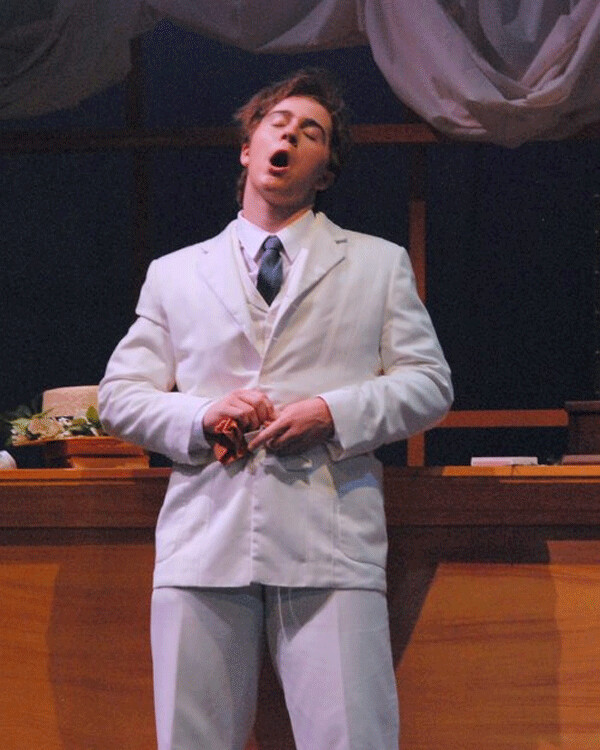News & Articles
Browse all content by date.

Famous musicians get more expensive as their career takes flight. Therefore, sharing young musicians who are on the cusp of greatness is one of the ideals practiced by the long-time Duluth organization known as Matinee Musicale. One studied glance at the 117 year program list shows prominent artists, like Pablo Casals and Charles Cadman, as well as youngsters, like Daniel Barenboim and Jacqueline Du Pre, who would go on to greatness. As an aside, next season cellist Amit Peled is returning to Duluth to play the same recital Casals played in 1918, using the same cello Casals was using then.
Last Tuesday was an example of a young artist just beginning what will most likely be a dazzling career. Jack Swanson, a fishing enthusiast who grew up in Stillwater, MN, is a very exciting tenor who is comfortable with opera, Broadway musicals, and a variety of songs all across the repertoire. He was joined by well-traveled pianist Roderick Phipps-Kettlewell as they presented an evening of art songs by eight very different composers.
As a good choice, they began the recital with the most rugged music. Franz Liszt was traveling around Europe, exploring poetry, music, and women during his pilgrimage. He discovered the sonnets of Petrarch, and could not help setting several of them to music. These were not folk songs; Liszt attempted to capture the delights and pains of Petrarch’s infatuation with “Laura” with both the piano notes and the line being sung by the (very high) tenor. ‘I find no peace, yet all my warring is over,’ writes the poet, and in his torment, Liszt captured anxiety, frustration, and grief with bold melodies and a very aggressive piano score.
The other two sonnets were more easeful, but with always the awareness that love is never going to be fulfilled. This young tenor might not have the same emotional life as Petrarch or Liszt, but he certainly has the voice to capture the blessings and the ambiguity of both. His combination of power, covered with velvet, made for a thrilling journey.
For his first change of pace, Swanson chose four short, sweet, familiar songs by four Germans: Schubert, Mozart, R. Strauss, and Beethoven. Each of these songs has a teasing element, with real love - as in the song Morgen (Strauss) between two committed lovers - being embraced as well. Schubert’s wistful Serenade was a nice balance to the hymn to Adelaide Beethoven shared. Swanson has a lovely lyricism, and Kettlewell is very gifted at changing moods very quickly from one piece to the next. These songs were less emotional, more restrained, than the Liszt, so we got to experience the melodious tones from Swanson’s young voice.
I could only laugh with delight at the third section of the recital, featuring songs by two misplaced Italians: Paolo Tosti and Salvatore Cardillo. Both of them were Italian by birth, but Tosti found fame in England, while Cardillo came to the USA for training, then stayed. These (more or less) Italian street songs take their emotion straight to the jugular vein of the audience. Raw emotion, poured out in rich melody as Swanson sang of the dreamlike visions of ideal love, as well as the totally frustrating experience of rejection. ‘Core ‘ngrato’ (Ungrateful Heart) was first sung by Enrico Caruso back in about 1911, and has been a hit with most every tenor since then. Swanson clearly let his sound flow out across Weber Recital Hall with all these emotional sonorities.
As an encore, Swanson offered the delicate and deeply passionate ‘Bring Him Home,’ from Les Miserables. With great beauty he let the high finale drift away on the evening. Watching the next decade in the life of Jack Swanson is going to be a real treat. Perhaps we’ll find him back in Duluth after he travels around the world.
| Tweet |


